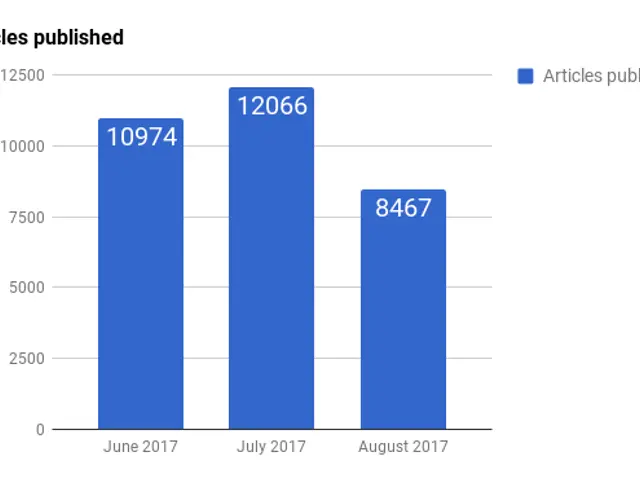New York Proposes Regulations for Children's Social Media Engagement
New York is leading the way in protecting children's mental health online, as the state's Attorney General Letitia James announced new regulations aimed at curbing the addictive features on social media platforms. The SAFE for Kids Act, signed last June by Gov. Kathy Hochul, is being closely watched as a potential model for other states to follow.
The SAFE for Kids Act requires social media companies to prevent minors from accessing algorithmic feeds and overnight notifications without parental or guardian consent. Companies must offer at least one alternative method for users to choose if they opt for ID verification, with acceptable methods including uploading an image or video, using an email or phone number for data cross-check, or using a government ID.
Research has shown that social media, particularly those with algorithmic feeds, can be addictive and result in negative mental health outcomes in children. According to Attorney General James, children and teenagers are struggling with high rates of anxiety and depression due to these addictive features.
The draft regulations provide social media companies with significant leeway in choosing age-verification methods, as long as they are proven effective. The rulemaking process is lengthy, with comments on the proposed regulations open until Dec. 1, and another year for James' office to release the final rules.
Social media platforms likely affected by the new law include Meta (Facebook and Instagram), Snap (Snapchat), and platforms owned by Alphabet (Google/YouTube), as these companies feature prominently in discussions about child protection and algorithm transparency. TikTok would likely fall under these regulations, while a site like GoodReads probably would not.
Concerns have been raised by privacy advocates about the risks involved in providing personal information for age determination. Under the proposed rules, social media companies must receive approval from children before requesting parental consent for access to algorithmic feeds or nighttime notifications.
New York will be responsible for ensuring compliance with the SAFE for Kids Act, which includes determining the details of enforcement and methods for age-gating users. The law will formally go into effect 180 days after the final rules are released, which means New York may need to wait until mid-2027 to see the impacts of the new law.
As the first of its kind in the country, the SAFE for Kids Act serves as a testing ground for the effectiveness of online age verification laws. If successful, it could pave the way for similar regulations across the United States, offering a brighter future for children's mental health online.







